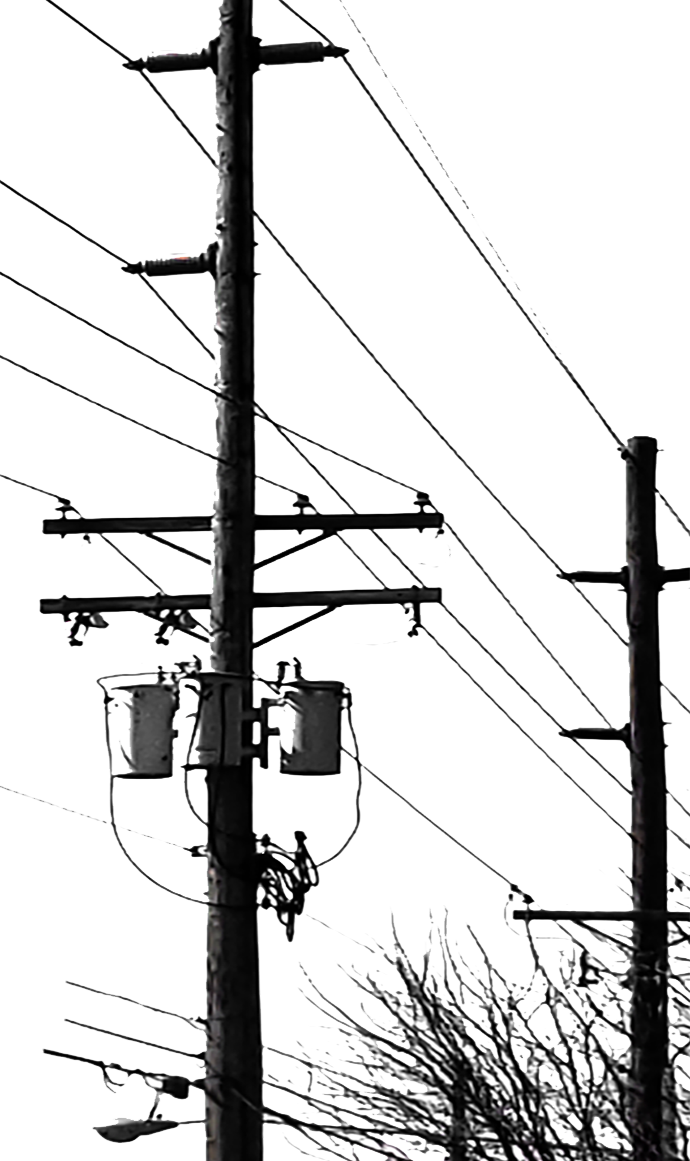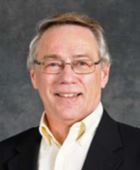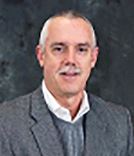|
THE NEW 2023 NATIONAL
ELECTRICAL SAFETY CODE
Significant Rules and Changes
March 15, 1-4 pm • March 16 & 17, 8am-4pm Eastern
15 Professional Development Hours (PDH) CREDITS
|
|
 x x
THIS COURSE IS LIVE AND IN-HOUSE AT
LAKELAND ELECTRIC, 501 E. LEMON ST.,
LAKELAND, FLORIDA 33801.
The 2023 Edition of the NESC® (ANSI C2-2023) was published on August 1, 2022. It will go into effect in most jurisdictions on February 1, 2023. The NESC is the national standard for safety in the design, construction, operation, and maintenance of electric utility supply and communication systems.
Even where compliance with the NESC is not legally enforced, employees of utilities and their contractors have a moral responsibility to design, construct, operate and maintain electric supply and communication systems in a safe manner. When incidents involving utility systems cause death, injury, and property damage, litigation is often based on claims of non-compliance with the NESC.
|
Course Overview:
During two and one half days of intensive presentation and learning exercises, you will explore the Code’s origin and purpose as well as significant rules and changes for electric supply stations, overhead line clearances, conductor and structure mechanical loading, underground lines, and grounding.
Who Should Attend:
- Anyone responsible for the design, construction, operation, maintenance, or safety of electrical or communications supply systems
- Electrical Engineers
- Technicians
- Line workers
- Electricians
- Safety Professionals
Requirements:
This course requires the latest NESC 2023 codebook published in August 2022. It can be purchased in print, PDF or digital format at :
https://www.techstreet.com/ieee/standards/ieee-c2-2023?product_id=2254672
Introductions
- Course objectives, schedule, notebook and format
- Course participants' sharing of questions and problems
Introduction to the NESC – Significant Rules and Changes
- History, purpose, and scope
- Organization and contents
- Committee structure
- Interpretations
- Revision process
- References and resources
- Section 1 – Introduction
- Section 2 – Definitions of Terms
- Section 3 – References
- Application principles
- Check-up quiz (Sections 1, 2 & 3)
NESC Section 9 Grounding - Significant Rules and Changes
- Purpose and scope (Sections 90 and 91)
- Effective grounding
- Points of connection of grounding conductor (Section 92)
- Grounding conductor and means of connection (Section 93)
- Grounding electrodes and connections (Sections 94 and 95)
- Ground resistance requirements (Section 96)
- Check-up quiz (Section 9)
NESC Part 1 Supply Stations - Significant Rules and Changes
- Purpose and scope (Sections 100 and 101)
- Protective arrangements (Section 11)
- Guarding live parts (Section 124)
- Working space (Section 125)
- Storage batteries (Section 14)
- Photovoltaic generating stations (Section 19)
- Check-up quiz (Part 1)
NESC Part 2 Overhead Lines - Significant Rules and Changes
- Purpose and scope (Section 20)
- General requirements (Section 21)
- Relative Levels (Section 22)
- Clearances (Section 23)
NESC Part 2 Overhead Lines (continued)
- Clearances (Section 23) continued
- Check-up Quiz Sections 21, 22, and 23)
- Grades of construction (Section 24)
- Loading for grades B & C (Section 25)
- Structure strength (Section 26)
- Check-up Quiz (Sections 24, 25 & 26)
NESC Part 3 Underground Lines - Significant Rules and Changes
- Purpose and scope
- General requirements (Section 31)
- Underground conduit systems (Section 32)
- Cable in underground structures (Section 34)
- Direct buried cable (Section 35)
- Cable risers and terminations (Sections 36 and 37)
- Equipment (Section 38)
- Check-up Quiz (Part 3)
NESC Legal Status and Compliance
- State law and regulation of regulated utilities
- Self-regulated utilities
- Legal precedent
- Enforcement and compliance
- Engineering ethics and practice
- Check-up Quiz
NESC Part 4 Work Rules - Significant Rules and Changes
- Purpose and scope (Sections 401 and 402)
- Supply and communications systems – Rules for employers (Section 41)
- General rules for employees (Section 42)
- Additional rules for supply employees (Section 44)
- Check-up Quiz (Part 4)
Open discussion of NESC application challenges and questions
About the Instructors:
 R. John Miner, P.E., President of Collaborative Learning Inc. and Co-Founder, Academy for Utility Line Design Professionals
R. John Miner, P.E., President of Collaborative Learning Inc. and Co-Founder, Academy for Utility Line Design Professionals
John is an accomplished executive manager and educator with over forty-five years of experience in the electric utility industry. He is president of Collaborative Learning, Inc. of Austin Texas, a firm that presents management and technical education programs and, through Collaboration Unlimited, provides management consulting services to the electric utility industry.
John has been an adult educator for most of his career and has conducted hundreds of educational programs for various audiences in forty states, Canada, and five overseas locations. His technical seminars and workshops for utilities have covered such topics as application of the National Electrical Safety Code (NESC), overhead and underground distribution systems, electric system planning, construction, operations, and maintenance. He has also served as an expert witness on litigation involving electrical accidents and compliance with the NESC.

M. Thomas Black, P.E., Technical Consultant and Continuing Education Program Developer and Instructor, Collaborative Learning Inc.
Tom is an accomplished executive manager, consultant and continuing education course instructor with more than thirty (30) years of experience in the electric and gas utility industries. In addition to working with Collaborative Learning, Tom’s experience includes employment with both municipal (Colorado Springs and City of Fountain, CO) and Investor owned (Progress Energy) utilities across multiple jurisdictions in Colorado, North Carolina, South Carolina and Florida.
Tom teaches courses on such topics as electrical distribution principles, overhead and underground distribution systems, the NESC, electric system planning, construction, operations, and maintenance. Tom has extensive executive level experience in managing electric and gas utility systems. System responsibilities include planning and engineering, standards, construction, operations and maintenance, gas pipeline safety, energy management (EMS), supervisory control and data acquisition (SCADA), outage management (OMS), field-related outage response and the planning and implementation of a SMART Grid system. Tom earned his bachelor’s degree from Washington University in St. Louis (with honors) and is a registered professional engineer in the states of Colorado and Arizona. He is a member of the Institute of Electrical and Electronics Engineers (IEEE).
Registration:
Online registration is now closed as of March 6, 2023.
Please contact Jillian Wolfe directly by phone
for possible late registrations: 512-687-7314
Course Registration Fee: $650.00 per registrant
Registration includes an onsite lunch and refreshment breaks for each of the full days (8:00 to 4:00) and refreshments breaks only for the ½-day morning or afternoon sessions. Registrants staying in the Lakeland area overnight are expected to make their own hotel accommodations.
If this course is full, please check for vacancies in this same course on the alternate dates of March 13th-15th. If both are full, you will be placed on a waiting list and we will contact you.
|
We will build custom programs
for your organization!
Collaborative Learning, Inc. offers programs on the NESC that vary in length from one-half to three days (3-18 contact hours) in whatever format and length best meets the needs of our clients. This includes on-site or on-line programs. All programs address the origins of the NESC and its fundamental application to electric utility transmission and distribution systems, highlighting the important changes that are effective with the 2023 edition. Longer programs will allow more extensive and in-depth coverage of topics, as well as practice exercises for participants.
For more information or to inquire about scheduling and pricing
of custom courses, contact Jillian Wolfe, Vice President
of Collaborative Learning, Inc.
Phone: 512-687-7314
Email: Jillian.Wolfe@CL-CU.com
|
